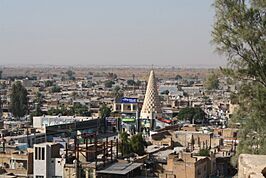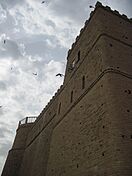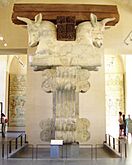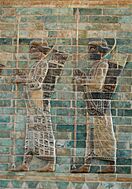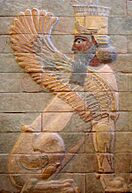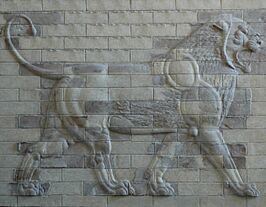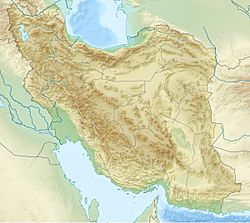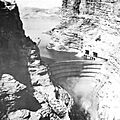Shush, Iran facts for kids
Quick facts for kids
Shush
Persian: شوش
|
|
|---|---|
|
City
|
|
| Country | Iran |
| Province | Khuzestan |
| County | Shush |
| District | Central |
| Area | |
| • Total | 3,652 km2 (1,410 sq mi) |
| Population
(2021 Census)
|
|
| • Total | 79,048 |
| • Density | 21.6451/km2 (56.061/sq mi) |
| Time zone | UTC+3:30 (IRST) |
Shush (Persian: شوش) is an important city in Iran. It is located in the Khuzestan province, which is in the southwestern part of the country. Shush is special because it is right next to the ancient city of Susa, which has a very long and interesting history. It serves as the main city for both Shush County and its Central District.
Contents
How Many People Live in Shush?
The city of Shush has grown quite a bit over the years! In 2006, about 53,897 people lived there. By 2011, the population increased to 59,161. The most recent count in 2016 showed that 77,148 people call Shush home.
Shush's Weather
Shush experiences very hot summers, where temperatures can even go above 50 degrees Celsius (122 degrees Fahrenheit)! Winters are usually mild and rainy. Snowfall is very rare in this city. However, in 2020, Shush saw snow for the first time, which was a very exciting event for the people living there.
What Drives Shush's Economy?
The economy of Shush has grown thanks to important transportation projects. The construction of the Tehran-Khorramshahr highway and a train station for the Trans-Iranian Railway helped the city develop.
Water and Farming
A big project that helped Shush was the Dez Dam. This dam was built between 1959 and 1963 to create hydroelectric power. It was the largest development project in Iran at that time. After the dam was finished, the area got a modern irrigation system. This helped agribusiness (large-scale farming) grow a lot.
Camels in Shush
Shush is also a good place for camels! There are over 3,000 camels in the area. Many of them live in a village called Ankush, which is in the Chenan Shush region.
Exploring Shush: Ancient Sites and Tourism
Tourism is a very important part of Shush's economy. People visit to see amazing ancient sites.
- Tomb of Daniel: This is believed to be the burial place of the prophet Daniel.
- Tomb of Debel Khozaei: This is the tomb of a famous poet from the third century.
- Chogha Zanbil: This is an ancient Elamite ziggurat (a type of stepped pyramid) that dates back to the 14th or 13th century BC. It is located near Susa.
- Ancient City of Susa: You can explore the ruins and archaeological site of the ancient city of Susa itself.
Chogha Zanbil was the first Iranian monument to be added to the UNESCO World Heritage List in 1979. This means it is recognized as a place of great importance to the world.
Images for kids
See also
 | Sharif Bey |
 | Hale Woodruff |
 | Richmond Barthé |
 | Purvis Young |


